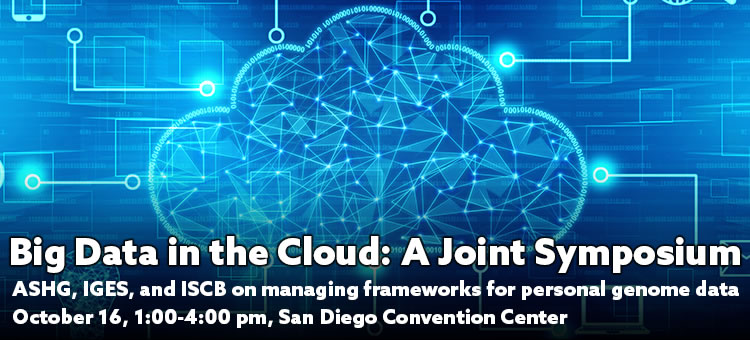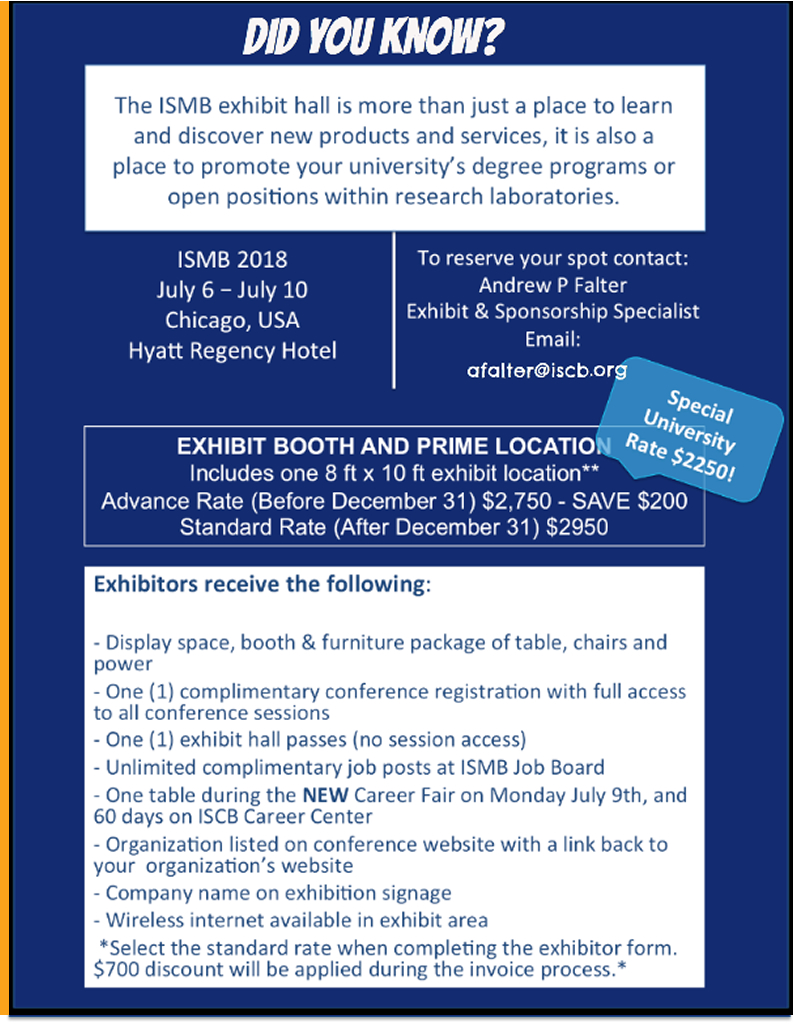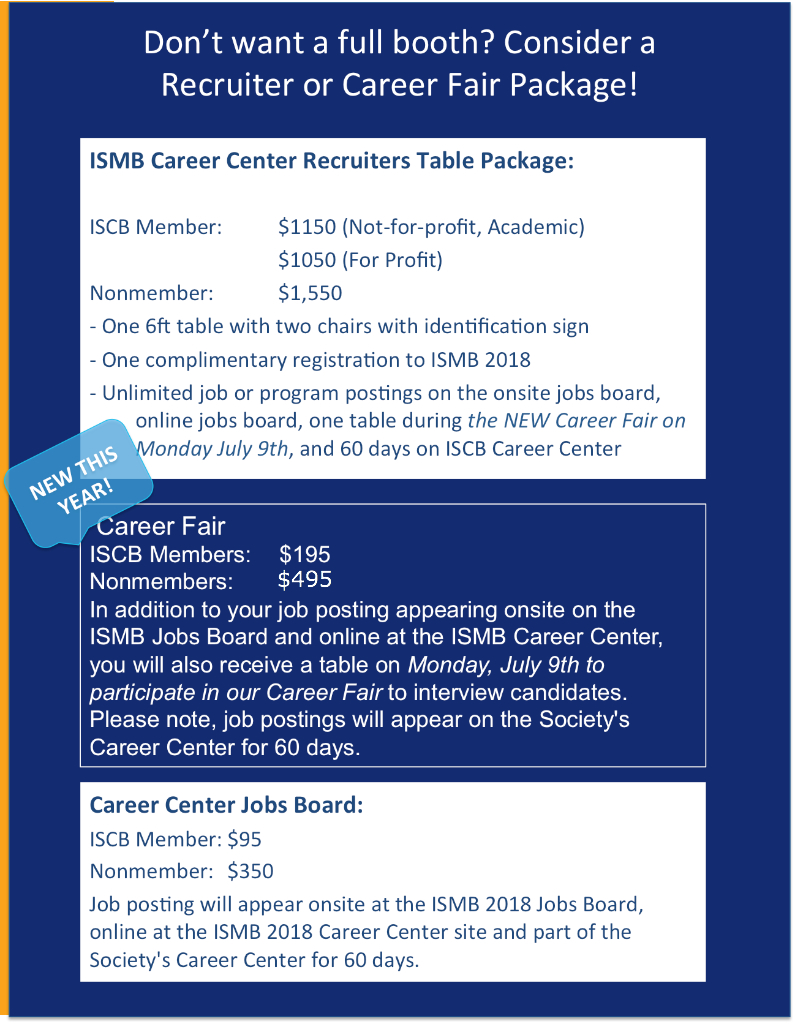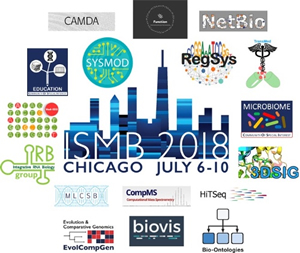ISCB Buzz: Latest News, Events & Announcements
![]()
ISMB 2018: FINAL Call for Technology Tracks! Deadline: TODAY!
ISMB attracts top international scientists and key decision makers in the life sciences from the world’s largest and most prestigious research institutions and companies. Promote Your Innovative Tools, Methods, Service at ISMB 2018!![]()
NEW THIS YEAR: ISMB 2018 Career Fair!
In addition to job postings appearing onsite on the ISMB jobs board and online at the Career Center, you will also receive a table on Monday, July 9th to participate in the ISMB Career Fair to interview candidates from a pool of 900+ students & postdocs. ![]()
Recruit - Engage - Inform!
Did you know the ISMB exhibit hall is more than just a place to learn and discover new products and services? It is also a place to promote your university's degree programs or open positions within research laboratories! ![]()
Register & SAVE! Early Bird Registration Deadline June 7, 2018
Planning on attending ISMB 2018 in Chicago? Register today before the early bird registration deadline and SAVE! Read through the program preview! Join us in Chicago to connect, engage, and inspire!![]()
ISCB Member Satisfaction Survey
As your selected professional society of choice, it’s important for ISCB to ensure we are meeting your needs as a member. Please take a moment to fill out our member satisfaction survey. It should take approximately 6-10 minutes to complete. ISCB is your Society. Help us make it what you want and need! ![]()
ISCB-LA Call for Papers and Abstracts
This call is an open invitation to scientists and professionals working in the fields of bioinformatics and computational biology to submit high quality proposals for tutorials, workshops or mini-courses (tutorial program) at the ISCB-Latin America, SoIBio and EMBnet Joint Bioinformatics Conference 2018 (ISCB-LA SoIBio EMBnet). Submit your research today!![]()
ASHG/IGES/ISCB Joint Symposium: Working with Big Data in the Cloud--Research and Privacy
![]()
Launch of All of Us Research Program
Enrollment for the National Institutes of Health’s All of Us Research Program is officially open! The All of Us Research Program is a momentous effort to advance individualized prevention, treatment and care for people of all backgrounds. The program’s goal is to enroll 1 million or more volunteers, and oversample communities that have been underrepresented in research to make the program the largest, most diverse resource of its kind.![]()
ISCB Leadership Nominations
Call for nominations for Treasurer and Vice President.
Only members can nominate; self-nominations are not allowed.![]()
Calling Principal Investigators to Host Internships!
The ISCB Student Council (ISCB-SC) is currently soliciting principal investigators (PIs) to host internships through the SC’s Internships Program. The program connects students in developing nations with PIs in developed countries to gain hands-on short-term research experience. These internships benefit the intern as well as the host lab both scientifically but also culturally. The program launched in 2009 and is committed to providing computational biology training for students from developing nations and improving competencies in the field. If you’re interested in hosting an internship or would like to know more about the internships program you can read our recently published article in PLOS Computational Biology [1], visit internships.iscbsc.org.![]()
ISCB Art in Science
The ISCB Art in Science Competition is a way to show the beauty of science in art form. ISCB invites submission to the 2018 ISCB Art in Science competition. All interested members (hereafter referred to as "artists") may submit images that have been generated as part of a research project and other creative efforts that involve scientific concepts or employ scientific tools and methods. Learn more at https://www.iscb.org/iscb-art-in-science-competition.![]()
Missing GLBIO this year?
We are too but very excited for GLBIO 2019 in Madison. In the meantime, take a look at the GLBio PLOS ONE Collection (http://collections.plos.org/s/glbio) and we look forward to seeing you at ISMB 2018 in Chicago!![]()
OUP Open Access Discount!
ISCB works closely with OUP Bioinformatics to reduce open access charges. ISCB is pleased to announce that OUP Bioinformatics will now offer a 15% discount on open access charges for all ISCB members. The discount will be applied after acceptance and requires author noting that he/she is an ISCB member. Not a member? Join today!![]()
ISCB Journal Subscription Discounts - New Titles Added
All ISCB members interested in subscribing to print or online issues of traditional subscription-based journals receive a discount on subscriptions to the journals highlighted below. Student members are entitled to additional discounts, when available. To subscribe, log into My ISCB and select the Subscribe to Journal menu item located on the left-hand menu. Take advantage of this DISCOUNT and order your journal TODAY!![]()
ISCB Career Center
The ISCB Career Center - Connecting you to your career! It is the place to post a job, search for a job, or upload your resume. Job posting and resume upload is complimentary for members. Nonmember may also participate for a nominal fee.![]()
ISCB Membership:
Not yet a member of ISCB? Don't keep missing out on conference discounts, access to incredible science and so much more! Click here for all membership benefits and further details!![]()
Shop while you Support ISCB on AmazonSmile:
AmazonSmile is a simple and automatic way for you to support ISCB every time you shop, at no cost to you. When you shop at smile.amazon.com, you’ll find the exact same low prices, vast selection and convenient shopping experience as Amazon.com, with the added bonus that Amazon will donate a portion of the purchase price to ISCB!![]()
UPCOMING CONFERENCES - MARK YOUR CALENDARS
 |
 |
 |
 |
 |
| ISMB 2018 July 6 – 10, 2018 Chicago, Illinois |
ECCB 2018 Sept 8 – 12, 2018 Athens, Greece |
ISCB-LA SOIBIO EMBnet 2018 Nov 5 – 9, 2018 Viña del Mar, Chile |
ROCKY 2018 December 6 - 8, 2018 Aspen/Snowmass Colorado |
RECOMB/ISCB Conference on Regulatory and Systems Genomics, with DREAM SAVE THE DATE December 8 - 10, 2018 New York City, USA |











